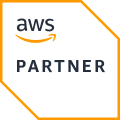
Welcome back to our three-part series: Smarter, Better, and Faster Investment Accounting, authored by Kirk Littleton.
To achieve a smarter, better, and faster accounting system, investment firms need an approach that recognizes the vital importance of both technical innovation and human collaboration.
In part one of this series, Kirk dove into how investment accounting can be made smarter and more efficient by leveraging sophisticated data capabilities. Data has an undeniably vital role in the digital evolution of investment accounting — but how, exactly, is that data employed in operational processes?
If you haven’t checked out Part One yet, make sure to give it a read first, as today FundGuard’s Kirk Littleton is expanding on the topic of real-time data and its use in investment accounting. Specifically, this second part of the Smarter, Better, Faster series discusses the use of best-of-breed solutions within the investment accounting function and why the point-solution approach is actually creating inefficient data and operations silos.
For years now, a clear push toward customer-centricity has coincided with the digital transformation movement among asset managers and their service providers to deliver the best possible methods for meeting customer expectations and achieving digital innovation while also maintaining affordable operations.
In the past, the best approach to this challenge was to establish best-in-class systems across different investment operations: investment decision-making, performance measurement, risk management, accounting, etc., followed by layers of bespoke best-in-class capabilities within each vertical function, e.g., for different asset classes, jurisdictions, etc. This approach may still be appropriate horizontally across investment operations, but within function-specific verticals, particularly investment accounting, the fragmentation creates unnecessary silos and inefficiencies that hinder rather than help digital transformation efforts.
As a result, we must consider an alternative to point solutions and adopt a more modern approach.
Applications for investment accounting have historically been divided by asset class. For instance, one application may exist for stocks, bonds, and exchange-traded derivatives. Meanwhile, another application is in use for more complex derivatives — and another application for managing bank debt, and then another application for private equity, and the list goes on.
With this approach, firms end up with a primary accounting system alongside bespoke accounting systems for each subdivision of every asset class, creating a web of applications that are only loosely connected, if they are connected at all.
In turn, generating insights via the primary investment accounting system can become overly complicated. This type of bespoke system must be essentially tricked into reflecting the positions of other security types to compute the total net assets and exposure of an investment portfolio.
Although this method of investment accounting may have once been effective — especially during times when comprehensive digital solutions were not yet widely available — bespoke systems are now becoming an outdated model for accounting that cannot scale with most businesses’ levels of growth.
The need to process all asset classes and the underlying data of each asset type highlights the necessity of more modern software development models that can unify rather than divide a system. Fortunately today, the modernization of software has reshaped how investment firms can now handle accounting. Innovative technologies like cloud computing, artificial intelligence (AI), and machine learning (ML) have drastically transformed the entire software development process involved in accounting. From testing and validating to deploying updates and building new products, the wind has shifted when it comes to how investment firms are leveraging accounting software.
As we touched on in part one of this series, simplifying your business’s data environment can greatly reduce the cost of managing several different data repositories.
However, this simplification cannot happen overnight and must begin first with determining new solutions to replace the current myriad of Best-of-Breed investment accounting applications with a single accounting system for all asset classes.
Throughout this process, investment firms must still maintain their Investment and Accounting Books of Record (IBOR and ABOR) and potentially even update their system to a more unified IBOR/ABOR solution. This makes the process all the more complex, as investment firms must consider how to consolidate their accounting systems onto a single engine with as minimal downtime as possible on the client side.
Of course, the key trade-off here is that the implementation of a single solution for IBOR and ABOR can significantly boost operational efficiency and cost savings.
To meet this challenge of dealing with IBOR and ABOR while simultaneously consolidating your accounting infrastructure’s bespoke systems into one unified tech layer, three key factors must be considered:
Platform migrations are becoming the norm not just in investment accounting but across all functions.
Cloud-based platforms offer several major advantages over bespoke accounting systems, including:
The modern realm of investment accounting relies on real-time knowledge and integrations.
As a result, investment firms can no longer support multiple different accounting systems divided by asset class. These systems must be unified to process all asset classes throughout their full life cycles.
At FundGuard, part of our core mission is to provide asset managers and their service providers with the processing power needed to process all asset classes from a single layer of truth.
Our platform offers a cloud-native investment accounting solution that includes critically important functions for maintaining a multi-book of records from a single source. The FundGuard investment accounting platform solution empowers asset managers to:
Though Best-of-Breed applications have undoubtedly earned their place in the history of investment accounting, the time has come to adopt a more modern and flexible approach.
With the support of FundGuard, your business can not only delight customers with greater cost and operational efficiencies but also focus on building better applications that suit your customers’ needs and demands.
Get in touch with FundGuard today to book a demo of our investment accounting platform solution.
Make sure to join us next time for the third and final part of this series, where we take a deep dive into the key challenges investment accounting technology must overcome in the next few years — and how FundGuard can help your firm clear this hurdle for good.
100 Bishopsgate
18th Floor
London, EC2N 4AG, United Kingdom
Sign up for FundGuard Insights



Your use of information on this site is subject to the terms of our Legal Notice.
Please read our Privacy Policy.